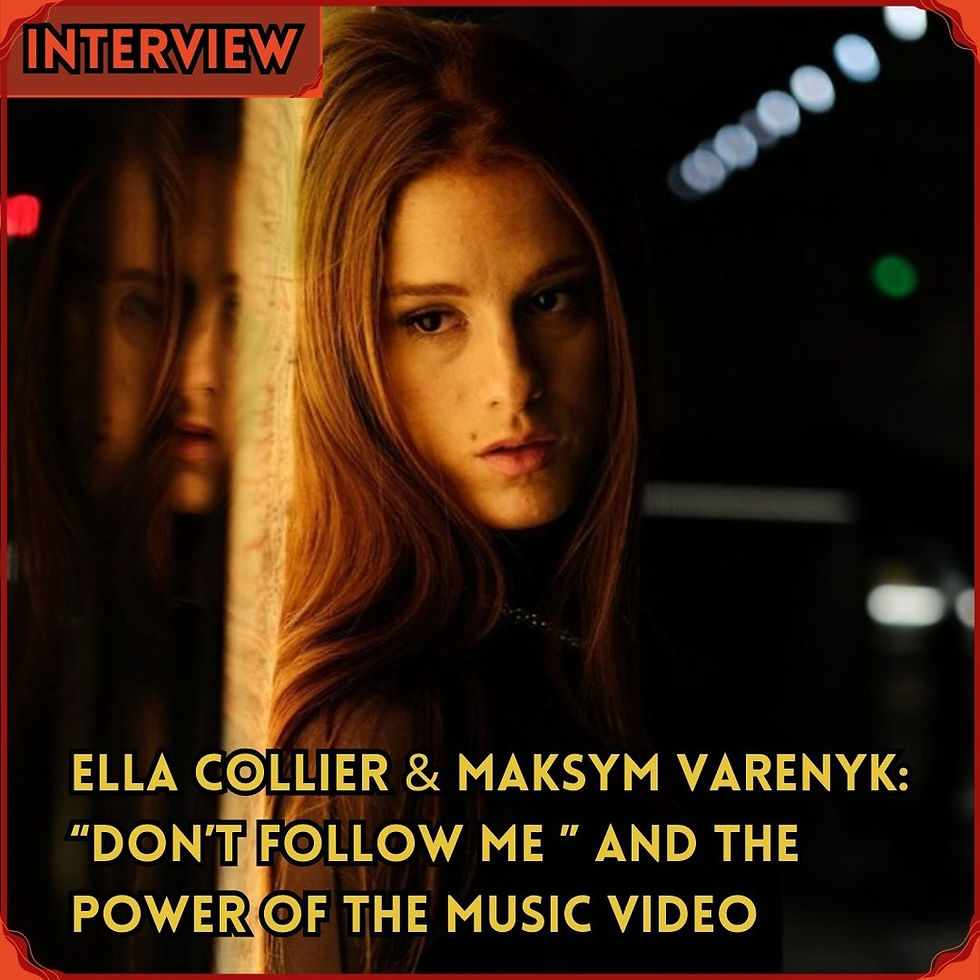M. Elizabeth Scott Interview: Freedom Through Poetry
- Evan

- Jul 24, 2025
- 3 min read

Poetry is artistic expression in its rawest form. The medium is built on conventions of breaking conventions. There is no right or wrong, no logical nor illogical method. From the most complex rhyme scheme to the simplest use of punctuation, every part of a poem is brimming with meaning.
Perhaps that is what gravitated M. Elizabeth Scott towards the art form. Though she admits that poetry is “not my favourite art form,” she has made a name for herself as an American poet with multiple projects behind her and a new collection, Her Gloves Against the Mirror, coming this October.
A lover of all shapes of art, Scott engages most with film and music, but poetry is where she finds space to express herself. “It’s the medium I can work with most freely,” she said. “Poetry can be abstract and alienating … I never felt bound by its ‘rules’ the way I might with music or film.”
Scott’s style crosses the line between abstract and sensory poetry, reflecting scenes and thoughts in wild, fragmented passages. A clear example is her most recent collection, Apocalypsing.
“I wrote most of it during the pandemic while staying with friends in rural Iowa,” Scott said. “I could only think clearly between 4 and 7 AM. I'd sit in the quiet and hear poems as sound and rhythm first, then try to capture that. The work got abstract, but I think non-linear approaches sometimes let us consider ideas we might otherwise dismiss.”

The poems within Apocalypsing are vivid yet fractured, confusing and compelling the reader in the same lines. That feeling was a conscious choice by Scott, pursuing that same bizarre sensation all felt in the time-freeze of 2020. “I wanted to capture what it felt like to live through collapse … The instability pushed me into those early morning hours when everything felt suspended. Time felt different, structures felt fragile. That actually freed me to write in ways that matched how surreal everything was.”
Beyond merely capturing a feeling, Scott sought to take the reader to another place through her abstract work – to invite them into “that space between sleeping and waking, where you feel your way through instead of thinking your way through. The sensory details anchor the abstract parts – like handholds in a dream.”
Like many great artists, Scott does not guide the art, but rather, it guides her. Following what works and taking breaks when things aren’t feeling right, collections like Apocalypsing are the result of patience, waiting for inspiration to come to her in numerous odd and abstract ways. “Sometimes you say what you need to in a few lines. Other times the idea needs space to contradict itself. I follow the internal logic of each piece … I'll write five poems in a few hours, then nothing for six months. When it's not flowing, I don't force it.”
Unlike other mediums, poetry is almost exclusively regarded as this prestigious, high art, only for those who know enough to have earned their place in the scene. Coming into a space where the pretentious and pompous tend to dwell was a challenge for Scott, who said she felt “shut out of poetry because my interests seemed too lowbrow.”

However, that sense of gatekeeping did not discourage Scott from continuing to pursue her passion, who realised that “art doesn't have to make rational sense to affect you. Dreams can be absurd but still move or frighten us. Learning to accept that art can work on you without having one clear meaning.”
While life-changing experiences like the pandemic had a profound impact on her work and outlook, surviving 2020 wasn’t the only thing that inspires Scott’s work. In fact, her relationship with the medium goes all the way back to her childhood. “My dad was a piper, so I grew up hearing traditional ballads: the Child ballads, songs from the Roud Folk Song Index. As a teenager, Jim Morrison made poetry seem cool, even though I realize now he was more of a lyricist than a poet. That led me to Gary Snyder, Diane di Prima, and Sylvia Plath. Poetry felt like something I could access.”
Nowadays, the key things that inspire Scott include “Friends, conversations,” and “shared experiences,” but it always comes back to “the mystery of trying to understand things that can't be understood,” tying into her bold and abstract approach.
With Apocalypsing behind her, Scott patiently waits for the release of her next collection through Blush Lit, Her Gloves Against the Mirror. A collection all about “the power of imagination to make life beautiful and bearable,” perhaps we can expect something brighter than the darkness of her previous work. In any case, we can certainly expect another batch of intricate and enveloping poems from one of the most enchanting rising poets today.





Comments